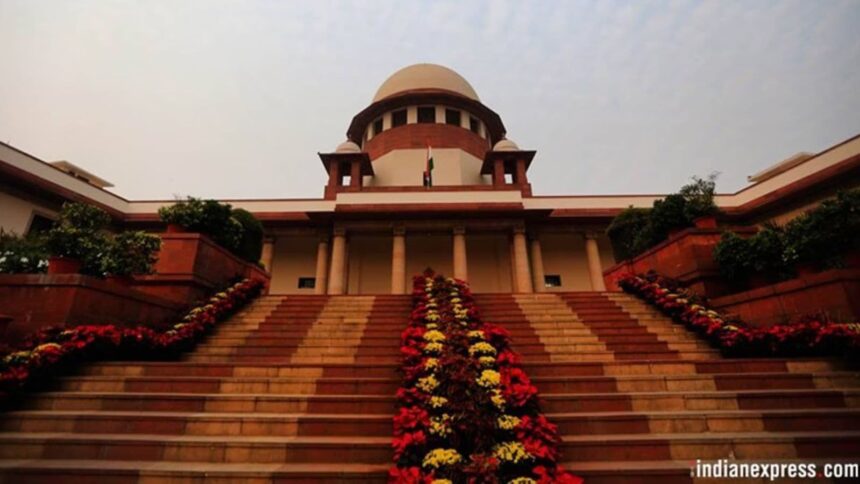Granting maintenance to a Muslim woman, the Supreme Court has reiterated that a Sharia Court or a Court of Kazi has no recognition under Indian law and their decisions are not binding on anyone.
The bench of Justices Sudhanshu Dhulia and Ahsanuddin Amanullah, in a February 4 ruling made public on April 22, cited the top court’s 2014 ruling in Vishwa Lochan Madan v Union of India wherein it was held that fatwas have no legal status in the country’s Constitutional scheme.
Writing for the bench, Justice Amanullah said the “‘Court of Kazi’, ‘Court of (Darul Kaja) Kajiyat’, ‘Sharia Court’ etcetera, by whatever name styled, have no recognition in law. As noted in Vishwa Lochan Madan (supra), any declaration/decision by such bodies, by whatever name labelled, is not binding on anyone and is unenforceable by resort to any coercive measure.”
The bench said “the only way such declaration/decision can withstand scrutiny in the eye of law could be when the affected parties accept such declaration/decision by acting thereon or accepting it and when such action does not conflict with any other law. Even then, such declaration/decision, at best, would only be valid inter-se the parties that choose to act upon/accept the same, and not a third-party.”
The woman had approached the Supreme Court against the August 3, 2018 decision of the Allahabad High Court which dismissed her plea challenging the Jhansi Family Court order refusing to award her any maintenance.
It was the second marriage for both the woman and her husband, who was in the BSF, in 2002. A daughter and a son were born to them.
In 2005, the husband filed for divorce in the ‘Court of Kazi’, , but it was dismissed in view of a compromise between them on November 22, 2005.
The woman alleged that he used to beat her demanding dowry and turned her out of home along with her children in May 2008.
On September 16, 2008, the husband filed a suit for divorce in the ‘Court of (Darul Kaja) Kajiyat’, Bhopal. On October 13, 2008, she filed a suit before the Family Court, seeking maintenance of Rs 5,000 a month for herself and Rs 1,000 a month for each child.
The Family Court partly allowed the petition for maintenance and granted Rs 1,500 per month to the daughter and Rs 1,000 per month to the son. It, however, dismissed her claim for maintenance on the finding that the husband did not leave her but rather she herself, due to her nature and conduct, was the reason for the dispute and her departure from the matrimonial home.
She then approached the High Court which dismissed her plea, noting that since she was living separately from her husband without sufficient reason, the findings recorded by the Family Court could not be termed illegal or perverse.
Deciding her appeal, the Supreme Court noted that the compromise agreement dated November 22, 2005 only said that the parties had decided to live together and agreed that they would not give each other any occasion to complain. “Hence, the very basis/reasoning for rejecting the appellant’s claim for maintenance appears to be ex-facie unsustainable… We are of the view that maintenance could not have been denied to the appellant-wife under the prevailing circumstances,” the bench said.
It said “the Family Court could not presume that a second marriage for both parties would necessarily entail no dowry demand”.
The bench asked the husband to pay her a monthly maintenance of Rs 4000 from the date of filing of the application for maintenance before the Family Court. It also directed that the children too be paid maintenance from that date until they become major.








